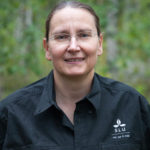It’s official: the results from the first year (2021) of the Horizon Europe Global Challenges calls mark a huge achievement for SLU, with four proposals coordinated by the university’s researchers selected for funding. To put the scale of this achievement into context, this is the same number of SLU-led proposals that were selected for funding across the entire 7-year period of the equivalent part of the previous framework programme, Horizon 2020’s Societal Challenges. This success speaks to the incredibly hard work put in by the project coordinators and their teams.
Stergios Adamopoulos (Dept. of Forest Biomaterials and Technology) will lead the €15m, 4-year project EcoReFibre: Ecological solutions for the recovery of secondary raw materials from post-consumer fibreboards, which has 20 partners from 7 European countries. The project aims to demonstrate viable recycling technologies that will enable the use of post-consumer fibreboards, substituting up to 25% of virgin fibres currently used to manufacture new fibreboards. These novel recycling technologies will be transferrable and exploitable for many other bio-based industries.

Stefan Gunnarsson (Dept. of Animal Environment and Health) will lead the €3m, 4-year project BROILERNET: Practice and science broiler production innovation network, with 25 partners from 13 European countries. The project aims to enhance the resilience and sustainability of the European broiler chicken sector by facilitating interactions between science and practice, focusing on environmental sustainability, animal welfare and animal health management. The consortium will identify best practices to address the most urgent needs of broiler farmers and disseminate them in a wide range of formats and languages.

Dennis Eriksson (Dept. of Plant Breeding) will lead the €5.5m, 3-year project GeneBEcon: Capturing the potential of gene editing for a sustainable bioeconomy, with 18 partners from 11 European countries. The project aims to advance the potential for new genomic techniques (NGT) for bio-based products, using potato and microalgae as case studies. The consortium members will apply gene editing to develop improved strains of the case study species, evaluate the benefits and risks of NGT-derived products and their consequences for human health and the environment, and assess regulatory conditions and public perception.

Frauke Ecke (Dept. of Wildlife, Fish and Environmental Studies) will lead the €8m, 5.5-year project BEPREP: Identification of best practices for biodiversity recovery and public health interventions to prevent future epidemics and pandemics, which has 14 partners from Europe, Africa, and South America. The project aims to investigate the role of undisturbed and restored biodiversity to mitigate threats to health security from zoonotic and vector-borne diseases and provide practical guidance on best practices for nature restoration, including rewilding and public health interventions. Frauke has recently accepted a new position at the University of Helsinki and will coordinate the project from there, with SLU retaining a substantial role in delivering the project.

The Grants Office is delighted to have supported all four coordinators in developing their winning proposals.
Commenting on the support he received, Stergios Adamopoulos says,
“The experience of working with the Grants Office has been fantastic along the entire proposal development and submission process and signing of the Grant Agreement. The commitment and professionalism of the team made an otherwise very difficult process seem much simpler. We are very lucky at SLU to have such enormous support.”
Dennis Eriksson adds,
“We were in contact with the SLU Grants Office early in the process of developing the proposal, who provided excellent feedback at various stages of the development. This feedback helped us give the proposal that extra touch necessary to bring up the score to the winning level.”
Echoing these sentiments, Stefan Gunnarson adds,
“The support from the Grants Office has been crucial for navigating the complex environment that is applications for money from the European Commission.”
Frauke Ecke, too, has positive feedback to offer:
“During the whole application process, I very much appreciated the support that I got from the Grants Office. Without their support, I would not even have dared to take on the stressful and demanding task of being a coordinator. The Grants Office helped during the entire process and identified flaws in the application that we were able to smooth out before submission – with a highly competitive application as a result. With the Grants Office support in place at SLU, I would not hesitate to take a coordinating role again.”
We hope this success will inspire other SLU researchers to apply to the Horizon Europe programme and consider taking a lead role in future applications. The Grants Office stands by to offer guidance and support to those who are ready to take the leap: reach out to Research Coordinators Fiona Reid and Ulf Westerlund, our experts on collaborative proposals.
Read more about the Horizon Europe Global Challenges on SLU’s external funding web pages, find open and upcoming calls by searching the European Commission’s Funding & Tenders Portal and access drafts of the 2023/24 Horizon Europe work programmes (SLU staff only).
